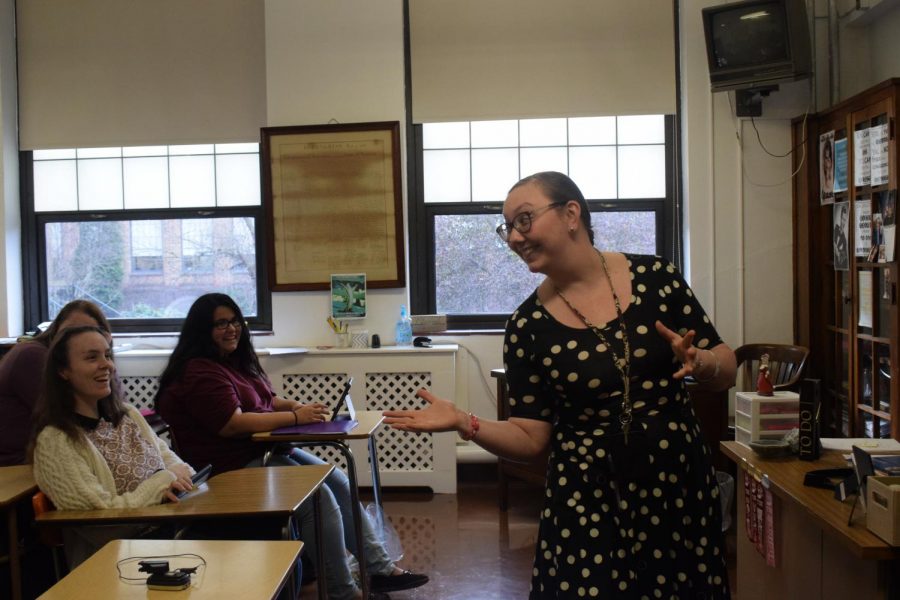Do people’s parents influence their political beliefs?
Mrs. Kayla Watt, Government teacher, teaches her class. Mrs. Watt teaches Economics, American Government and AP Government. “Political socialization is absolutely a thing, meaning that parents do have an affect on their child’s political beliefs,” Mrs. Watt said.
Whether they like it or not, children usually mimic the behaviors of their parents. David Hannum, Spanish teacher, has similar beliefs. “Even as a teen, kids are listening to everything their parents say. It does not mean that they are feeble-minded. It’s like that with everyone; we listen to what we hear first, and from there we begin to form our own opinions.”
As they grow, the desire to mirror their parents may turn into desultory rebellion or disdain, especially during their teenage years. A child raised to be a conservative might keep those ideals throughout their adulthood; conversely, that same child might rebel and morph into a radical liberal.
Most of the political tension going on in America is mostly due to people’s preconceived notions about someone’s character because of their political beliefs. This division is apparent on every forum imaginable, and the sad thing about it is that it does not have to be like this. Your political alignment does not dictate your personality, so to speak. Moreover, you should not judge or dismiss someone for being different from you.
The problem with choosing to align and identify with a party based solely on the fact that your parents chose to is that you did not seek the information yourself; you just did it because you believed you are supposed to. It is necessary that you listen to what both parties have to offer and make that decision for yourself. Senior Gabby Black adopts a more holistic approach when it comes to political self-education, “I go through all news platforms so I can expose myself to all biases and get a good idea of different perspectives so I can form my own.”
When parents feed their children biased information, it could plant the seed for them to discriminate against and stigmatize those who do not have the same beliefs as them. For example, if someone grew up hearing her mom or dad drone on and on about how democrats are overly sensitive or how republicans are selfish, that person might think that it is okay stereotype someone for being different. According to the most recent statistics from the FBI, about 79.8% of hate crime incidents were motivated by race or religion. Even more recent is the anti-Semitic shooting of a synagogue in Pittsburgh, resulting in the massacre of 11 parishioners. As history has proved to us many times over, this notion is threatening to society and democracy.
It is of paramount importance that a generation of tolerant youth sprout from the ashes of our fragmented society to lead us into a new age of synergy. Whether we like it or not, the world is changing and we have to make choices that will influence the kind of change that we want and need to happen. We do this by educating ourselves.
Government teacher Mrs. Kayla Watt said,“Political socialization is absolutely a thing, meaning that parents do have an affect on their child’s political beliefs. However, that does not mean that because your parents are a Democrat or Republican you are condemned to be either one forever. ” I believe ideals like hers will help us reach a more tolerant, homogenous society. Once we have laid down that foundation, we can move on to discussing the major issues at hand.



